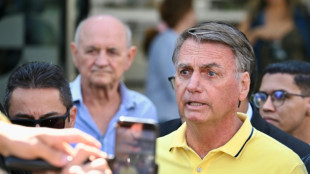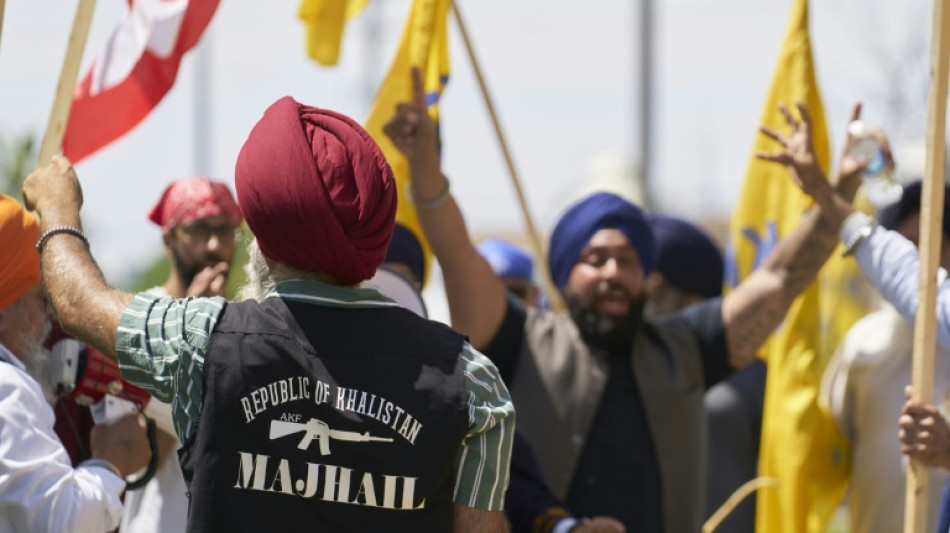
-
 Kneecap to play Paris concert in defiance of objections
Kneecap to play Paris concert in defiance of objections
-
Indonesian child's viral fame draws tourists to boat race
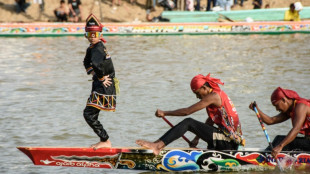
-
 LAFC's Son, Whitecaps' Mueller score first MLS goals
LAFC's Son, Whitecaps' Mueller score first MLS goals
-
Australian quick Morris out for 12 months with back injury
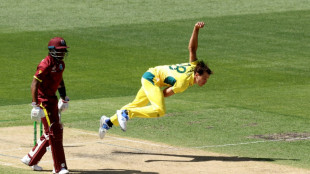
-
 Son scores first MLS goal as LAFC draw 1-1 with Dallas
Son scores first MLS goal as LAFC draw 1-1 with Dallas
-
India's Modi dangles tax cuts as US tariffs loom
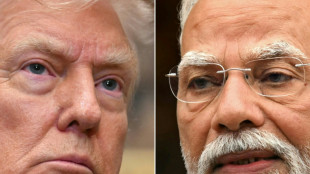
-
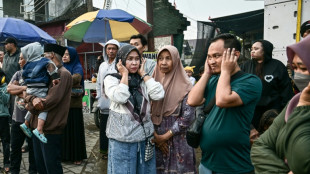 Indonesia turns down ear-splitting 'haram' street parties
Indonesia turns down ear-splitting 'haram' street parties
-
North Korea test-fires two new air defence missiles: KCNA
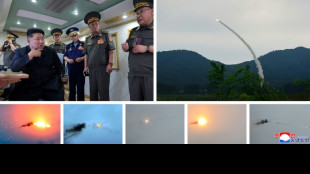
-
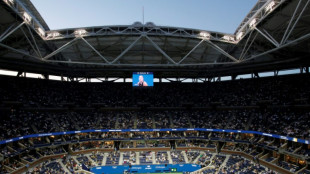 Sinner, Sabalenka chasing rare repeats as US Open gets underway
Sinner, Sabalenka chasing rare repeats as US Open gets underway
-
Venezuela rallies militia volunteers in response to US 'threat'
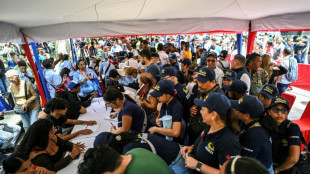
-
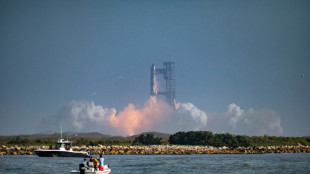 Musk's megarocket faces crucial new test after failures
Musk's megarocket faces crucial new test after failures
-
UK's mass facial-recognition roll-out alarms rights groups
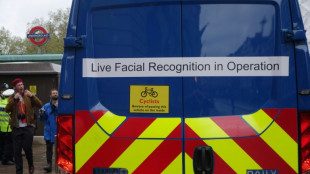
-
 Home hope Henderson, Aussie Lee share Canadian Women's Open lead
Home hope Henderson, Aussie Lee share Canadian Women's Open lead
-
Fucsovics holds off van de Zandschulp for ATP Winston-Salem crown

-
 Fleetwood, Cantlay share PGA Tour Championship lead
Fleetwood, Cantlay share PGA Tour Championship lead
-
Argentina stun All Blacks with historic 29-23 upset win

-
 France begin Women's Rugby World Cup with hard-fought win over Italy
France begin Women's Rugby World Cup with hard-fought win over Italy
-
Barca complete late comeback win as Atletico drop more points in Liga

-
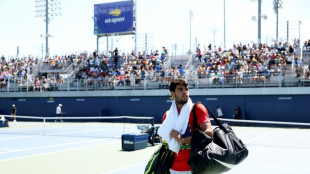 Alcaraz targeting 'unbelievable' Sinner at US Open
Alcaraz targeting 'unbelievable' Sinner at US Open
-
Swiatek plays down favorite status ahead of US Open

-
 De Bruyne strikes in Napoli's strong start as Modric's Milan sank by Cremonese
De Bruyne strikes in Napoli's strong start as Modric's Milan sank by Cremonese
-
Springboks back in contention after win - Erasmus
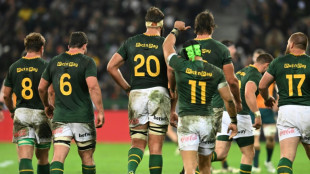
-
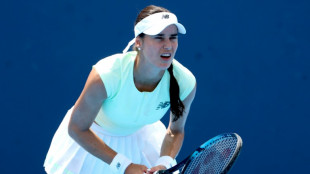 Cirstea downs Li to claim WTA Cleveland crown
Cirstea downs Li to claim WTA Cleveland crown
-
Nigeria says killed over 35 jihadists near Cameroon border
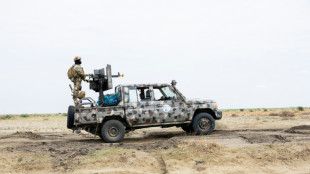
-
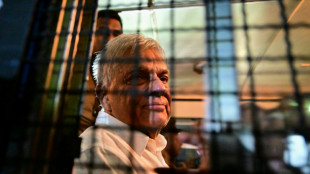 Sri Lanka ex-president rushed to intensive care after jailing
Sri Lanka ex-president rushed to intensive care after jailing
-
Russia claims more Ukraine land as hopes for summit fade
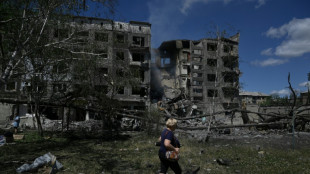
-
 Atletico still without Liga win after Elche draw
Atletico still without Liga win after Elche draw
-
Schell shock as six-try star leads Canada to 65-7 World Cup hammering of Fiji

-
 Gyokeres scores twice but injuries to Saka, Odegaard sour Arsenal rout of Leeds
Gyokeres scores twice but injuries to Saka, Odegaard sour Arsenal rout of Leeds
-
Leverkusen stumble in Ten Hag Bundesliga debut, Dortmund collapse late
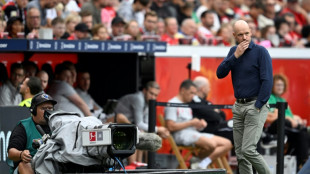
-
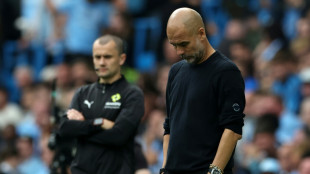 Man City revamp rocked by Spurs, Arsenal thrash Leeds
Man City revamp rocked by Spurs, Arsenal thrash Leeds
-
Gyokeres scores twice as Arsenal rout Leeds

-
 De Bruyne strikes in Napoli's strong start to Scudetto defence at Sassuolo
De Bruyne strikes in Napoli's strong start to Scudetto defence at Sassuolo
-
Seoul says fired warning shots after North Korean troops crossed border
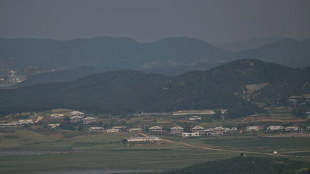
-
 McGhie the hat-trick heroine as Scotland overwhelm Wales in Women's Rugby World Cup
McGhie the hat-trick heroine as Scotland overwhelm Wales in Women's Rugby World Cup
-
'It's in my DNA': Williams relishes US Open return at 45
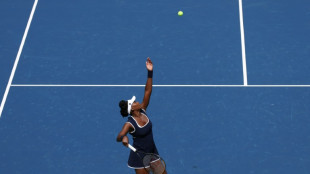
-
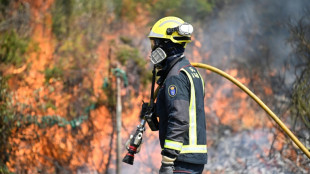 Portugal suffers new wildfire death as Spain beats back blazes
Portugal suffers new wildfire death as Spain beats back blazes
-
Pollard steers Springboks to victory over Wallabies

-
 Aubameyang stars as Marseille end chaotic week on five-goal high
Aubameyang stars as Marseille end chaotic week on five-goal high
-
US govt wants migrant targeted in crackdown deported to Uganda: lawyers

-
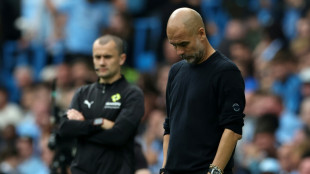 Man City revamp rocked by Spurs, Villa beaten at Brentford
Man City revamp rocked by Spurs, Villa beaten at Brentford
-
Philipsen wins Vuelta a Espana opening stage

-
 Crystal Palace's Eze returns to boyhood club Arsenal
Crystal Palace's Eze returns to boyhood club Arsenal
-
Reyna trades Dortmund for Gladbach chasing 'new chapter'

-
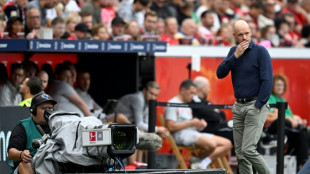 Leverkusen stumble in Ten Hag Bundesliga debut
Leverkusen stumble in Ten Hag Bundesliga debut
-
'Far too late': Palestinians despair after UN declares famine in Gaza
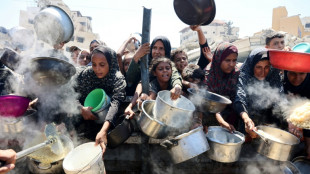
-
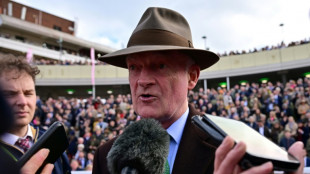 Diamond sparkles for Irish training icon Mullins in the Ebor
Diamond sparkles for Irish training icon Mullins in the Ebor
-
Tottenham's new-found desire to defend delights Frank

-
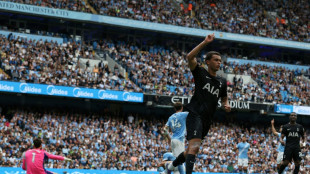 Man City troubles reappear as solid Spurs go top
Man City troubles reappear as solid Spurs go top
-
Marquez sweeps to victory in Hungary to bolster title lead


Khalistan: India's Sikh separatist movement in diplomatic storm
Canada has accused India of involvement in the killing of a separatist Sikh leader on its soil -- a charge denied by New Delhi as "absurd".
Hardeep Singh Nijjar, who was slain near Vancouver in June, was an activist campaigning for the establishment of "Khalistan", an independent Sikh homeland in India.
The Khalistan campaign dates back to India's independence and has been blamed for the assassination of a prime minister and the bombing of a passenger jet.
It has also been a sore point between India and several Western nations home to large Sikh populations, with New Delhi demanding Canada and others take stricter action against separatists.
Here is what we know about the Khalistan movement:
- What is the Khalistan movement? -
Sikhism is a minority religion originating in northern India that traces its roots back to the 15th century and drew influences from both Hinduism and Islam.
Its adherents make up less than two percent of India's 1.4 billion people but Sikhs are nearly 60 percent of the population in the northern state of Punjab, the faith's heartland.
The Indian subcontinent won independence in 1947 as it was suffering through the blood-soaked Partition that divided the former British colony along religious lines.
Muslims fled to the newly formed nation of Pakistan while Hindus and Sikhs fled to India in the ensuing violence, which killed at least one million people.
The historical region of Punjab was split between the two countries and was wracked by some of the worst violence of Partition.
Since then, some Sikhs have called for the creation of "Khalistan", a separate sovereign nation and "land of the pure" carved out of Punjab and governed by the faith's precepts.
Those calls grew louder in subsequent decades as Punjab became one of the wealthiest states in India, owing to an agricultural revolution that dramatically lifted farm yields.
- Why is the Khalistan movement infamous? -
The campaign was largely considered a benign fringe movement until the early 1980s, when a charismatic Sikh fundamentalist launched a violent separatist insurgency.
Jarnail Singh Bhindranwale and his followers murdered scores of Sikh political opponents and Hindu civilians in the name of establishing Khalistan.
In 1984, they began stockpiling arms and barricading themselves in the Golden Temple, the faith's holiest shrine in the city of Amritsar.
Bhindranwale, his top lieutenants and hundreds of Sikh civilians were killed when the government stormed the site that June, also resulting in extensive damage to the temple.
The army's action, codenamed Operation Blue Star, outraged Sikhs around the world who accused the troops of religious desecration.
Prime minister Indira Gandhi was shot dead later that year while walking through her garden, in an act of vengeance by two Sikh soldiers on her bodyguard detail.
Her assassination triggered a spasm of violence that saw thousands of Sikhs killed in New Delhi and other parts of the country in brutal reprisals.
Gandhi's assassins were later hailed as martyrs by Sikh leaders and their painted portraits adorn the museum at the Golden Temple.
- Why does the government still consider it a threat? -
The insurgency was eventually brought under control but violence continued in Punjab for another decade after the storming of the Golden Temple.
Supporters of the Khalistan campaign have also been accused of terror attacks outside of India's borders.
Canada-based Sikh extremists were accused of carrying out the 1985 bombing of an Air India flight, killing 329 people.
Memories of the insurgency still haunt India, which has outlawed the Khalistan movement and listed several associated groups as "terrorist organisations".
Since the insurgency ended, displays of support for the Khalistan movement in Punjab are rare and have been quickly clamped down upon by authorities.
Indian police in April arrested firebrand Sikh leader Amritpal Singh, who had returned to Punjab from abroad the previous year and begun preaching for a separate Sikh homeland.
Singh was caught after leading authorities on a weekslong manhunt that saw mobile internet cut off for days in the state, home to 30 million people.
- Who supports the movement? -
The Khalistan movement's main vocal advocates are these days primarily among the large Sikh diaspora, particularly in Canada, Britain and Australia.
Fringe Sikh groups periodically hold referendums to endorse the establishment of a Sikh homeland in India.
India has often complained to foreign governments about the activities of Sikh hardliners who, it says, are trying to revive the insurgency.
Earlier this year, Indian consulates in Britain and the United States were vandalised by Khalistan supporters.
India's foreign ministry criticised Canada in June for allowing a float in a parade depicting Gandhi's assassination by her bodyguards.
C.Garcia--AMWN
